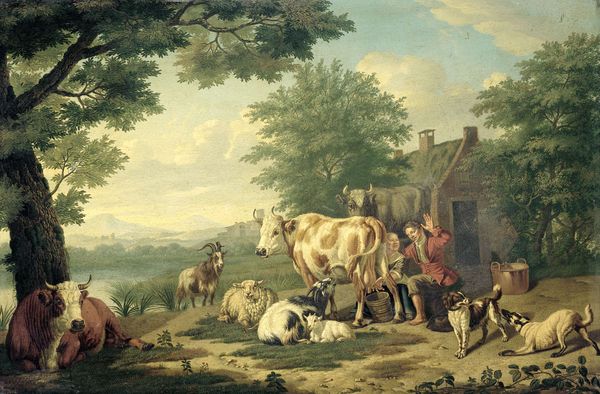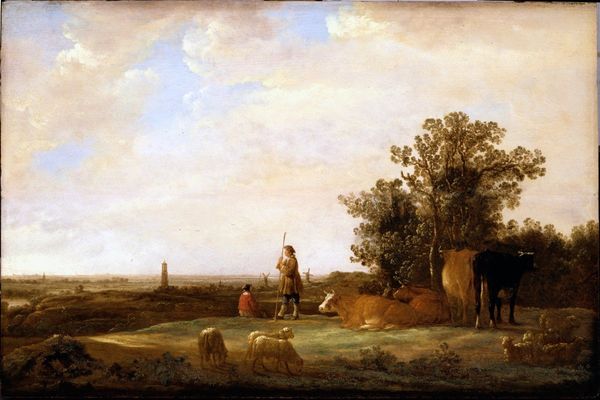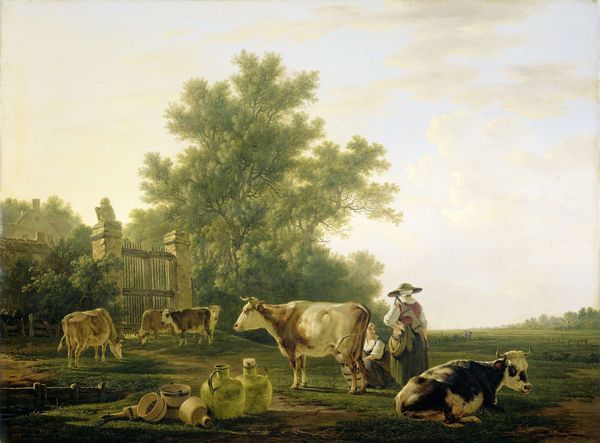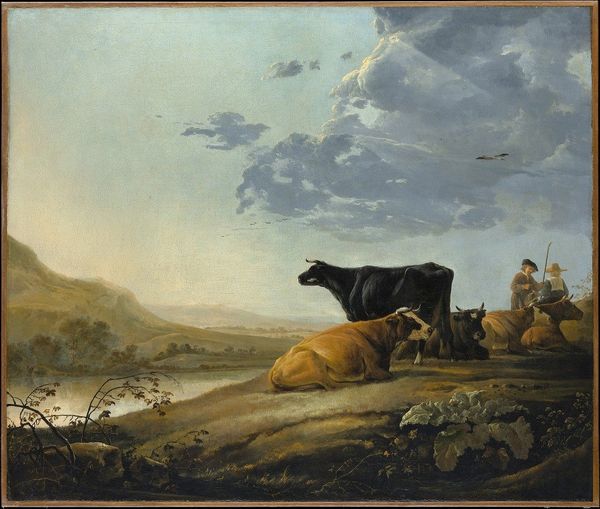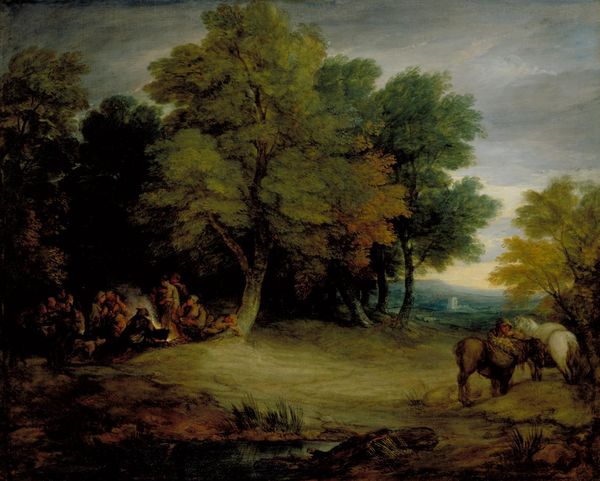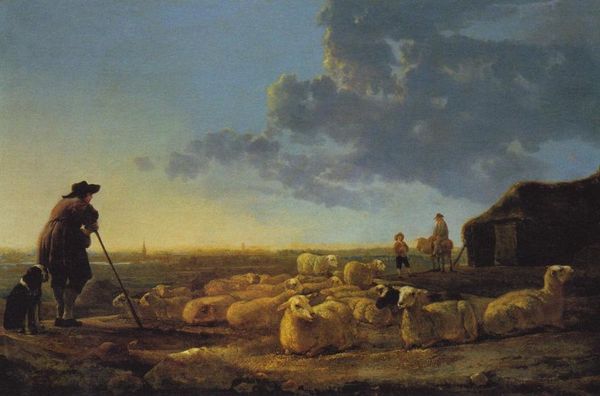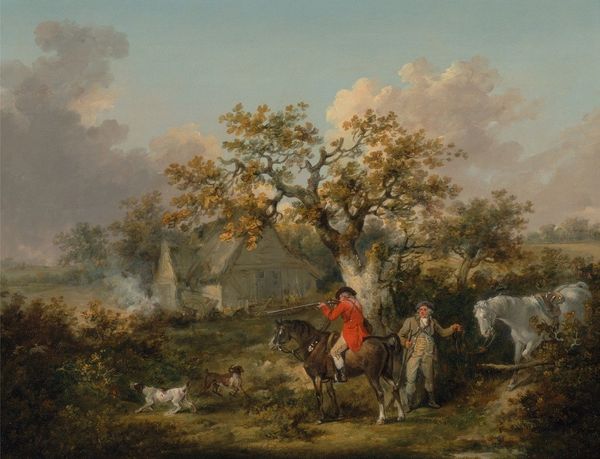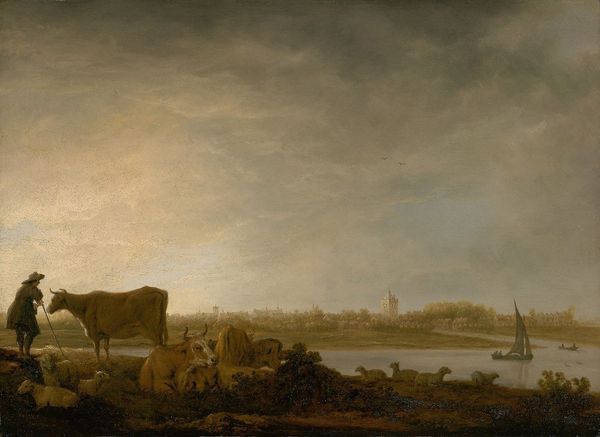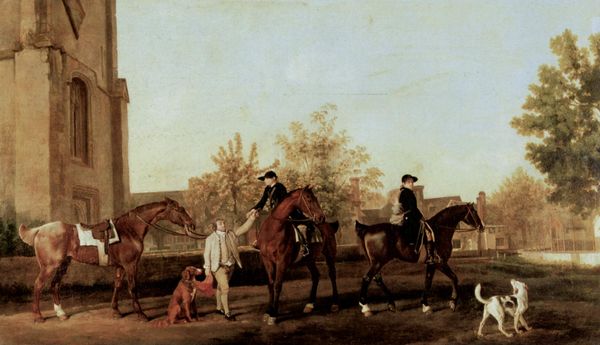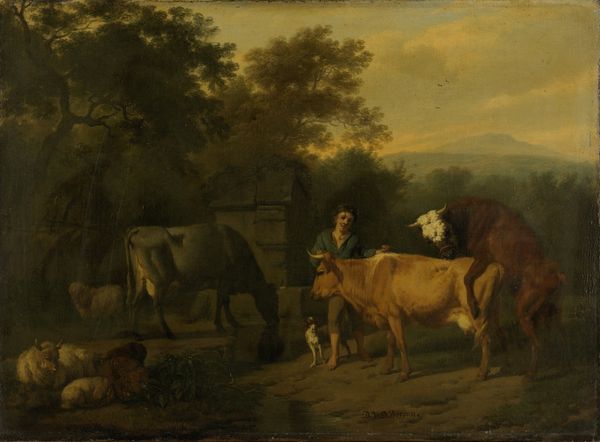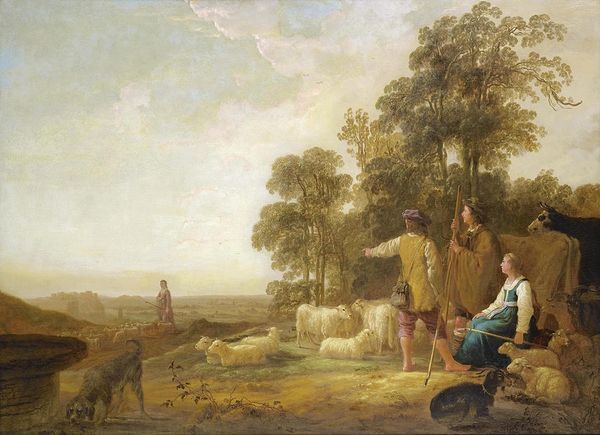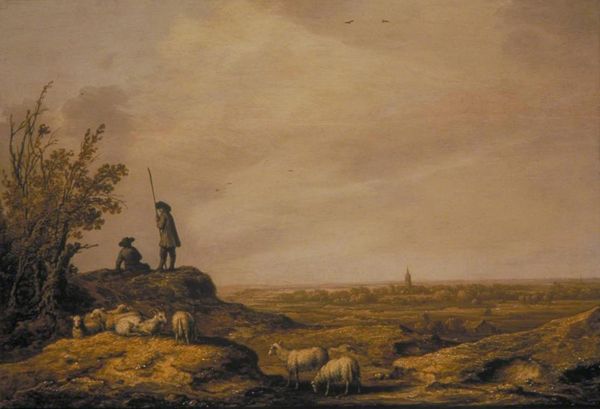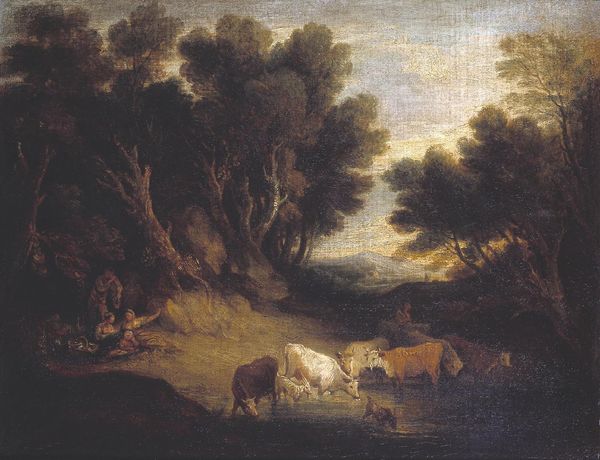
painting, oil-paint
#
baroque
#
dutch-golden-age
#
painting
#
oil-paint
#
landscape
#
genre-painting
#
realism
Copyright: Public domain
Aelbert Cuyp painted this scene of shepherds and their flock in the Netherlands, likely during the Dutch Golden Age. It evokes a sense of pastoral harmony, a common theme in Dutch art of the period. But let's consider the social and economic context. This was a time of great prosperity for the Dutch Republic, fuelled by maritime trade and colonial expansion. Cuyp’s painting can be interpreted as reflecting a desire for stability and order amid rapid social change. The serene landscape and idealized figures present a vision of rural life that may not have fully corresponded with reality, but which spoke to the values and aspirations of the Dutch merchant class who were the artist's patrons. Dutch landscape painting served as a form of national self-representation. To understand Cuyp's work more deeply, we can turn to historical records, economic data, and studies of Dutch social history. These resources help us to understand the complex relationship between art, society, and the institutions that shape them.
Comments
No comments
Be the first to comment and join the conversation on the ultimate creative platform.
